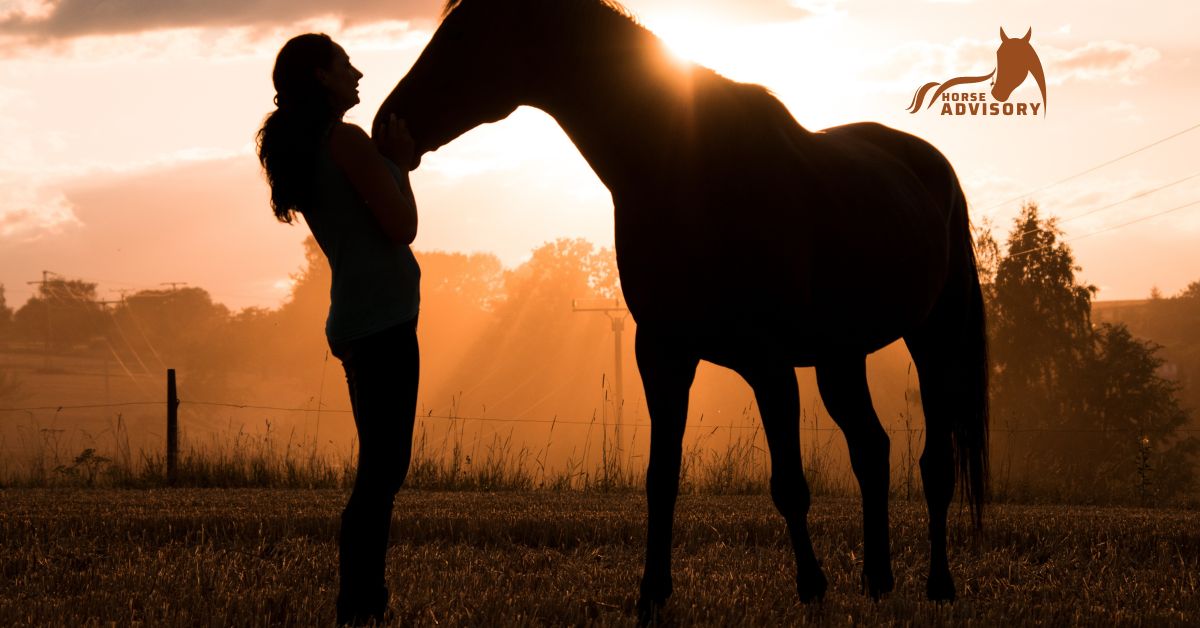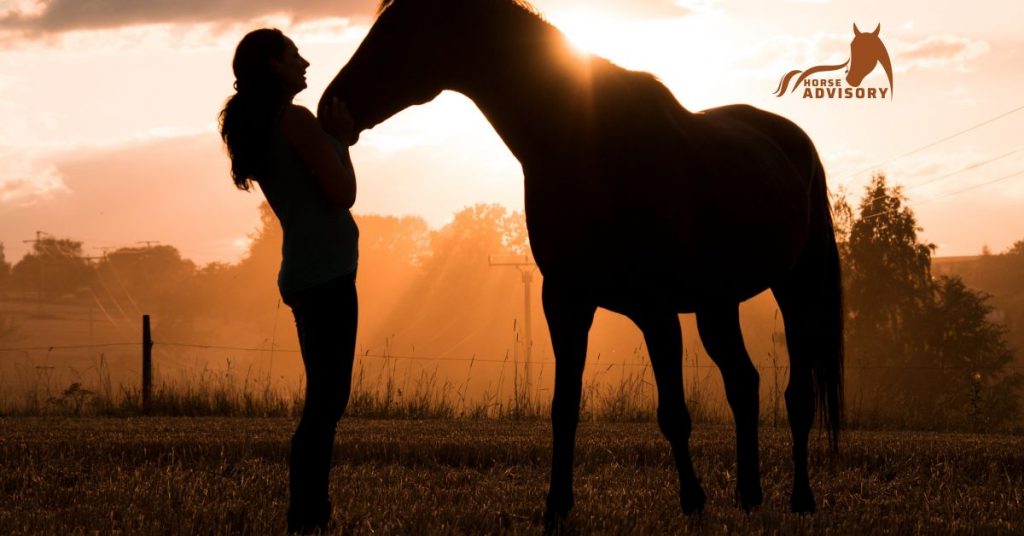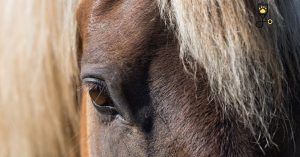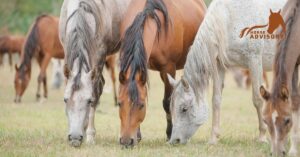What’s the best way to care for your horse? There are plenty of online resources and articles on how to take care of this majestic animal, but it can be tough to determine which tips are essential and which ones are simply outdated. In this blog post, we’ll provide you with 12 must-follow tips and tricks for horse care. Whether you’re a first-time owner or have been caring for horses for years, these guidelines will help keep your four-legged friend healthy and happy. So without further ado, let’s get started!
12-Horse Care Tips and Tricks
So, to help ensure your horse’s health and well-being, here are our top 12 tips for horse care:
1. Provide Proper Nutrition
One of the most important aspects of horse care is providing your horse with a balanced diet. A healthy diet includes hay, grains such as oats and barley, fresh vegetables and fruits, and high-quality supplements such as minerals and vitamins. Make sure to consult a veterinarian for specific feeding recommendations based on your horse’s age, breed, activity level, and health status.
2. Exercise Regularly
Exercise helps to keep horses strong and healthy. It also prevents boredom which can lead to behavioral issues. Depending on your horse’s age and fitness level, exercise should be given at least three times per week. This can include activities such as grazing in pastures or walking around an enclosed area with other

3. Monitor Your Horse’s Health
Regularly monitor your horse’s health by taking its temperature, checking for signs of lameness, and looking for any skin infections or parasites. You should also have your vet perform checkups on a regular basis. This can help detect any health issues before they become serious.
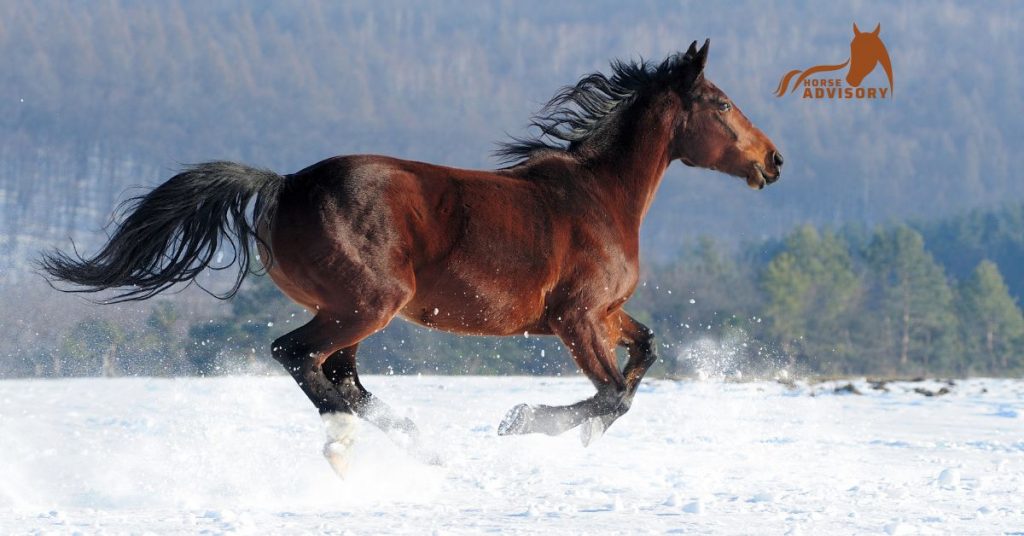
4. Proper Hoof Care
It is essential to keep your horse’s hooves clean and healthy through regular trimming and shoeing as needed. Not only does this prevent infection but it can also improve the mobility and comfort of your horse when in motion. Have a farrier regularly examine your horse’s hooves to ensure that they are in good condition, properly shaped, and free from excessive wear.
5. Provide Shelter
Horses need proper shelter to keep them safe from the elements. This could mean having an indoor stable or a lean-to outside with hay bales for insulation. Make sure that your horse has access to adequate amounts of fresh air and shade during hot summer days, as well as protection from strong winds and cold temperatures in winter months.
6. Maintain Adequate Hygiene
It is important to clean your horse’s stall regularly and provide it with plenty of bedding material to stay comfortable throughout the day. You should also groom your horse daily using brushes, combs, hoof picks, and other tools depending on its coat type.
7. Create Socialization Opportunities
Horses are highly social animals and need interaction with other horses to stay healthy. Make sure to create opportunities for your horse to socialize by visiting a nearby stable or taking it on trail rides where it can interact with other equines.
8. Use Protective Gear
When riding, make sure that you use the proper protective gear such as a helmet, boots, and gloves. This will help protect both yourself and your horse from injury in case of an accident. Additionally, if you plan on taking part in any competitions or events, make sure to purchase appropriate saddle pads and blankets for extra cushioning and comfort.
9. Monitor Your Horse’s Behavior
Be aware of any changes in your horse’s behavior as this could be the first sign of a medical issue or simply boredom. Keep an eye out for signs such as excessive sweating, pacing, kicking, and biting as these behaviors could indicate pain or illness.
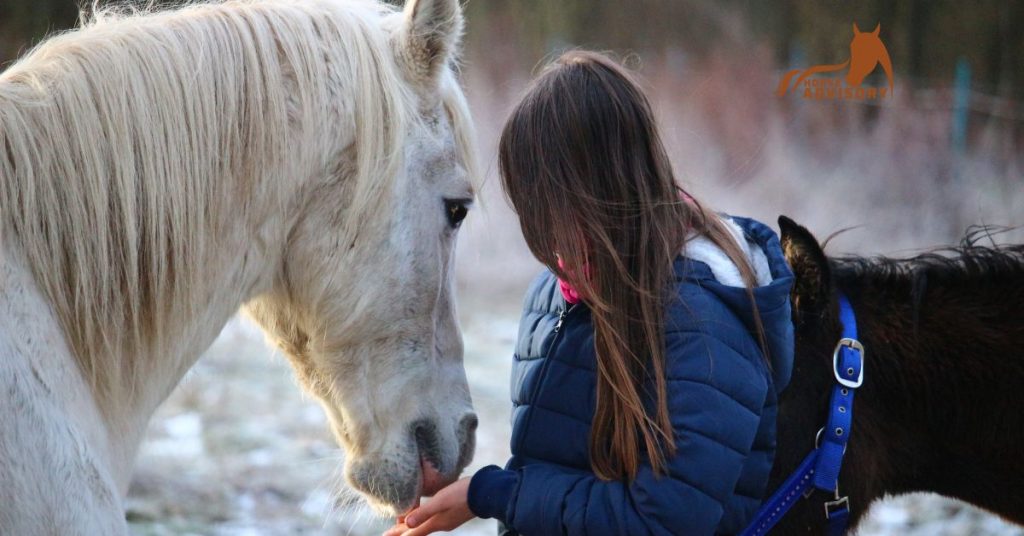
10. Have Backup Plans
As with any pet, it is important to have backup plans in place in case of an emergency. Make sure that you have access to nearby equine veterinarians and farriers in case your horse needs immediate care. You should also keep a list of feed stores and other supplies handy in case you need to purchase them quickly.
11. Utilize Professional Help
If you are new to owning horses, consider hiring a professional trainer or stable manager who can provide guidance on how best to care for your horse.
12. Feed Your Horse Properly
Make sure that you provide your horse with appropriate nutrition by feeding it the right type of hay, grain, and other treats. You should also take into account your horse’s age, weight, activity level, and health status when determining what type of feed is best for it.
Conclusion
Caring for a horse requires regular attention and dedication. Taking the time to properly care for your equine companion will ensure that it has a healthy, happy life. From providing proper shelter and nutrition to engaging in regular exercise and grooming, there are many steps involved in ensuring that your horse is getting the best possible care. With patience and commitment, you can be sure that with the right preparations you can have an enjoyable experience with your new four-legged friend!
Frequently Asking Questions
Q: How often should I feed my horse?
A: This will depend on the type of feed you are providing and the age, weight, activity level, and health status of your horse. Generally speaking, you should provide hay or grain twice a day and offer other treats sparingly. You may also want to consult with a professional trainer or veterinarian to get more specific instructions for your particular situation.
Q: How much exercise do horses need?
A: Horses require at least 30 minutes of daily exercise as part of their regular care routine. If your horse is underweight or hasn’t been ridden in a while, then it may need more than that to stay healthy and happy. Talk to your veterinarian or trainer to get a better idea of what type and how much exercise is best for your horse.
Q: What kind of care does my horse need on a daily basis?
A: Daily care for horses includes providing food, water, shelter, grooming, socialization opportunities, and exercise. Additionally, you should monitor your horse’s behavior for any changes or signs of pain or illness that may require medical attention. For more specific instructions it is best to consult with a professional trainer or veterinarian.
Q: How can I provide my horse with the best possible care?
A: The best way to provide your horse with the highest quality of care is by following the advice of professionals such as veterinarians and trainers. Make sure that you are providing your horse with proper nutrition, exercise, shelter, and socialization opportunities. Additionally, keep an eye out for any changes in behavior or signs of illness that may require medical attention. With patience and dedication, you can ensure that your horse is getting the best possible care.
Q: What should I do if my horse is ill or injured?
A: If you suspect that your horse is ill or injured, then it is important to seek veterinary help immediately as some conditions can be life-threatening if left untreated. Make sure that you have access to nearby equine veterinarians and farriers in case of an emergency and also have a list of feed stores handy so you can purchase supplies quickly. In the worst-case scenario, you may need to consider euthanasia options. However, with proper care and attention, many horse health issues can be managed or even prevented.
